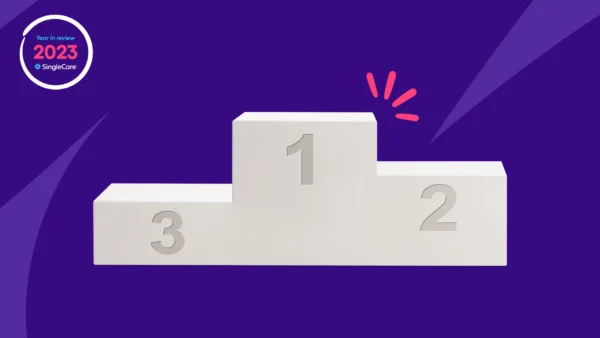Allergy treatment | Medicare coverage | Does Medicare pay for allergy shots? | How to save
Allergies are a common daily struggle for nearly all Americans. Some people use over-the-counter or prescription drugs to help relieve the symptoms. Others use allergy immunotherapy to beat the symptoms.
Allergy shots are an example of allergen immunotherapy. Allergy shots are developed for an individual after running tests to determine what allergens cause a reaction. Once the test is complete, a healthcare provider will have a serum created that creates an immune reaction to the allergens that affect an individual.
In some cases, you may grow out of certain allergens, but not always. As we age, we also have to deal with changes in our immune system, which may cause the onset of allergies in adulthood. These changes make Medicare beneficiaries more susceptible and at a higher risk for infections, inflammation due to allergies, and autoimmune diseases.
Since many beneficiaries are taking multiple allergy medications, it can make it difficult to diagnose allergies. Additionally, some allergy medications may have adverse reactions to prescriptions that are taken for other health conditions. This is why many beneficiaries are looking at allergy shots as an alternative.
RELATED: Ways to treat seasonal allergies | Allergy statistics
Allergy treatment for Medicare consumers
Medicare covers allergy testing for beneficiaries under diagnostic laboratory services. The most common diagnostic test for allergies is a skin test to check for reactions to different allergens. It’s covered under Medicare Part B.
Some types of allergy testing include:
- Intradermal tests
- Skin tests
- Blood tests
- Percutaneous tests
Allergy shots are performed in a healthcare provider‘s office or an outpatient medical facility, and there are several treatment options that may be covered by Medicare.
These treatments are proven effective and are fairly painless. Since you are receiving injections of allergens that cause a reaction in your body, you could feel the effect after your injection. Typically, you‘ll receive one to three doses per week for eight to 24 weeks.
You‘ll undergo a buildup phase in which you work up to stronger serums for consecutive rounds of shots. Generally, one to three shots are administered per allergen per visit.
Sublingual immunotherapy is another way to treat your allergies. Instead of injections, it’s administered by a tablet or droplet of serum under the tongue. This procedure isn’t approved by the FDA. It’s considered experimental and, therefore, not covered by Medicare.
Which part of Medicare covers allergy shots?
Medicare Part A
Medicare Part A covers your hospital and inpatient services. Allergy shots are typically administered in an outpatient setting. The exception would be if you were admitted for having a severe allergic reaction.
There are some people who have such adverse reactions to allergens that they can go into anaphylaxis shock. In these cases, they could be admitted to the hospital for acute treatment, which is covered under Part A.
Medicare Part B
Medicare Part B covers outpatient services, diagnostic testing, and office visits. Allergy shots, testing, and serums are typically covered under Medicare Part B if deemed medically necessary. Once you’ve met your Medicare Part B deductible, you can expect to pay a 20% coinsurance of the Medicare-approved amount. In addition, you could potentially be expected to pay up to a 15% Medicare Part B excess charge if your healthcare provider does not accept Medicare assignment.
Medicare Part C
Medicare Part C insurance plans are also referred to as Medicare Advantage plans. These plans combine your Original Medicare Part A and B benefits (and sometimes your Medicare Part D plan) into an all-in-one private plan. These plans may include some additional benefits not covered by Original Medicare.
Since allergy shots are covered by Original Medicare, Medicare Advantage plans are required to cover them as well. Instead of paying a 20% coinsurance, most Medicare Part C plans will have a fixed copay for allergy shots.
Medicare Part D
Medicare Part D is prescription drug coverage for medications picked up from the pharmacy. Allergy injections are covered under Medicare Part B. Prescription medications for allergies that are picked up from a pharmacy will be covered under Medicare Part D. Some examples would be oral medications such as Clarinex and Dymista or EpiPens for immediate treatment for anaphylaxis shock. For some individuals, carrying an EpiPen is a medical necessity.
Medigaps
Medigaps work together with Original Medicare Parts A and B. These Medigap plans are designed as secondary coverage to help pay for your portion of the Medicare out-of-pocket costs.
These plans are secondary to Medicare and don’t cover prescription medications that are picked up from a pharmacy. They help cover items that are covered under Medicare Parts A and B.
They are standardized and provide the same coverage regardless of the health insurance company providing the supplemental coverage. They also offer the freedom to visit any healthcare provider of your choice. Medigap plans are not designed to work with Medicare Advantage plans and are only available to consumers with Original Medicare.
Does Medicare pay for allergy shots?
Medicare covers allergy shots under Medicare Part B. Allergy shots can cost between $1,000 to $4,000 per year, according to Cleveland Clinic. Depending on how you receive your Medicare, you may owe a small copay, coinsurance, or nothing out of pocket. To determine which coverage options best meet your needs, consult your State Health Insurance Assistance Program or call 1-800-MEDICARE.
Other ways to save on allergy shots
The Medicare Extra Help Program may help reduce the out-of-pocket costs for your allergy medications by covering deductibles, premiums, coinsurance, and copayments.
If you have coverage for an allergy shot denied by Medicare, you can file an appeal and request a redetermination if the following applies.
- If you were denied reimbursement of services or covered prescription drugs you already received or paid for.
- You disagree with a decision to stop receiving a particular service.
- Or if your Medicare coverage doesn‘t pay for a drug, service, or item you think you should be able to receive.
If you have an allergy medication that is not covered by Medicare or you want the brand name drug, you can use a free drug coupon from SingleCare.
SingleCare is a great way to help offset the costs of allergy medications. Create a free account with SingleCare and see how much money you could be saving with a free discount card.
Sources
- Allergy shots, Cleveland Clinic (2023)
- How do I file an appeal?, medicare.gov











